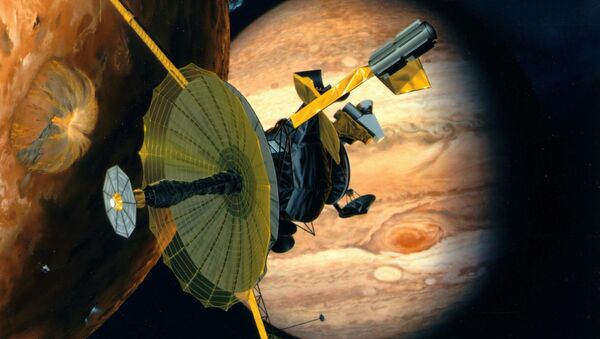Reacting to the European Union's move, UK Brexit Secretary David Davis lashed out the European Commission, saying that it was "shooting itself in the foot just to prove that the gun works", adding that the decision would delay the Galileo project by three years and cost the EU £1bn more.
Sputnik discussed the issue with Dr. Malcolm Macdonald, Director of the Scottish Centre of Excellence in Satellite Applications (SoXSA), based at the University of Strathclyde, and a Non-Executive Member of the UK Space Agency Steering Board.
Sputnik: Taking into account this story and the recent comments made by David Davies, how significant would it be if Britain was not be included in Galileo project with the EU?
Malcolm: I think from a UK perspective it would be quite concerning for the space sector if we weren't to be involved in the Galileo project. I think the space sector has made it quite clear that it sees continued involvement in the space sector as being important to the sector, and I think the UK government has also recognized and understood that to continue to be involved.
Seems that the EU hasn't closed the door completely to UK participation in its future #Space Programme. #Galileo #Brexit pic.twitter.com/q2cZ9k53Yf
— CornwallEU (@CornwallEU) June 8, 2018
Sputnik: The UK is one of the world leaders in nanotechnology and also the specialized technology used in projects such as Galileo. What effect will Brexit have on the UK's impact in these sectors? Could we see the UK fall behind and become outpaced by developing countries and rapid development coming from the EU?
Malcolm: I think that really depends on what Brexit actually ends up meaning. Like I said, there is a clear risk to the sector but it's also worth remembering that the space sector in the UK is very large; it employs an awful lot of people and the whilst Galileo project is important to the sector it's not the sole part of the sector. While it would be of concern to who's involved to it, and there would be an economic impact on it, the sector is quite resilient and they've shown strength across a number of different areas from telecommunications to earth observation; we've got the spaceport activities happening in the UK as well - we're seeing growth in a number of areas. Whilst looing activity in Galileo would obviously be a loss to the sector, the sector is very strong and innovative and I except it would stay strong.
The #EU #Space budget released today kind of covered the entire #Galileo program in full. The #UK is probably better off developing an own system. Without the #ECJ UK companies would also have no ultimate arbitration mechanism in case of commercial problems. #SpaceEconomy
— SPACEwatch (@realSPACEwatch) June 6, 2018
Sputnik: Davies has stated that if the UK would drop out of the Galileo project with the EU; Britain could potentially create a similar partnership with Australia and Commonwealth countries. Is this realistic do you think? What would this partnership look like and moreover would it be successful and long lasting in comparison to Galileo and other such projects?
Malcolm: Could we do it as the UK? Yes, absolutely. As could France, as could Germany, as could any number of countries. The reason why we chose to work with partners in Europe is because of the scale of investment required. Could the UK afford to make that investment if there is the political willingness then yes, we could afford to do it, but it wouldn't be a chip investment, and I think looking towards other partners like Australia or New Zealand or anyone else we might choose to work with in terms of mitigating some of the costs to deploy it. We have the technical expertise and if there is political desire then we have the funding to achieve it.
The views and opinions expressed by Dr. Malcolm MacDonald are those of the expert and do not necessarily reflect those of Sputnik.



